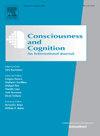Why is mindfulness helpful? Exploration of the flexibility of cortical control in practitioners of Buddhism
IF 2.1
3区 心理学
Q2 PSYCHOLOGY, EXPERIMENTAL
引用次数: 0
Abstract
Empirical evidence has demonstrated the beneficial effects of mindfulness in the enhancement of positive psychology factors and cognitive performances, as well as in the remission of psychological distress. Researchers have proposed mechanisms for mindfulness’ comprehensive effects, such as through mental flexibility, and examined indices of neurophysiological changes. This study provided a new neuroscientific index via the aid of a neurofeedback device to investigate the role of active cortical control and, hence, mental flexibility in Buddhist meditation practitioners as compared to nonpractitioners. Twenty-eight Buddhist meditation practitioners and 28 nonpractitioners proceeded individually with the EEG neurofeedback procedure as well as with the assessments of self-esteem, subjective well-being, and Buddhist mindfulness levels. The neurofeedback procedure was designed to provide signal feedback according to participants’ alpha brainwaves state, and participants were asked to maintain the appearance and disappearance of the signal as best as they could. The alpha transformation index was computed to measure the ability to voluntarily transition between their mental states. Our results showed that after controlling for age and gender, practitioners demonstrated a significantly higher alpha transformation index, indicating greater mental flexibility, along with enhanced self-esteem, life satisfaction, and lower negative affect as compared to nonpractitioners. The alpha transformation index was also significantly and positively correlated with Buddhist mindfulness levels and life satisfaction. These findings suggest that mindfulness might help improve the ability to switch between different mental processes via modulations of neural efficiency markers and exert its beneficial effects. The newly developed neuroscientific index also encourages future worthwhile investigations.
为什么正念是有用的?佛教修行者皮层控制灵活性的探索
经验证据表明,正念在增强积极心理因素和认知表现以及缓解心理困扰方面具有有益作用。研究人员提出了正念综合效应的机制,例如通过心理灵活性,并检查了神经生理变化的指标。本研究提供了一种新的神经科学指标,通过神经反馈装置来研究活跃皮层控制的作用,从而研究佛教冥想练习者与非练习者的心理灵活性。28名佛教禅修者和28名非禅修者分别进行脑电图神经反馈程序,以及自尊、主观幸福感和佛教正念水平的评估。神经反馈程序旨在根据参与者的α脑电波状态提供信号反馈,并要求参与者尽可能地保持信号的出现和消失。阿尔法转换指数是用来衡量他们在精神状态之间自愿转换的能力。我们的研究结果表明,在控制了年龄和性别后,与非从业者相比,从业者表现出更高的α转换指数,表明更大的心理灵活性,以及更高的自尊,生活满意度和更低的负面影响。alpha转化指数与佛教正念水平和生活满意度也呈显著正相关。这些发现表明,正念可能有助于通过调节神经效率标记来提高在不同心理过程之间切换的能力,并发挥其有益作用。新开发的神经科学指数也鼓励未来有价值的研究。
本文章由计算机程序翻译,如有差异,请以英文原文为准。
求助全文
约1分钟内获得全文
求助全文
来源期刊

Consciousness and Cognition
PSYCHOLOGY, EXPERIMENTAL-
CiteScore
4.30
自引率
8.30%
发文量
123
期刊介绍:
Consciousness and Cognition: An International Journal provides a forum for a natural-science approach to the issues of consciousness, voluntary control, and self. The journal features empirical research (in the form of regular articles and short reports) and theoretical articles. Integrative theoretical and critical literature reviews, and tutorial reviews are also published. The journal aims to be both scientifically rigorous and open to novel contributions.
 求助内容:
求助内容: 应助结果提醒方式:
应助结果提醒方式:


